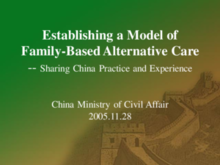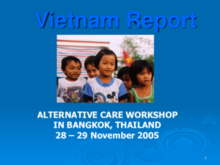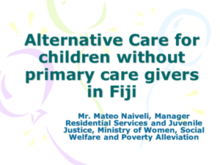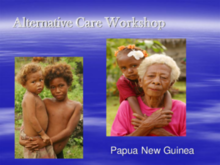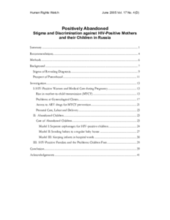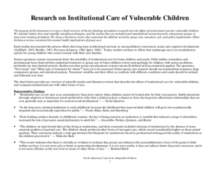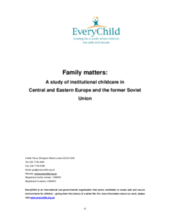Displaying 1401 - 1410 of 1482
This presentation was given at the Alternative Care Workshop in Bangkok in November 2005.
This presentation was given at the Alternative Care Workshop in Bangkok in November 2005. It provides an overview of the situation for children without parental care in China, the legal framework for child protection in the country, and the social welfare institutions that support children's care.
This presentation was given at the Alternative Care Workshop in Bangkok in November 2005.
This presentation was given at the Alternative Care Workshop in Bangkok in November 2005. It provides an overview of the situation of children without parental care, or primary caregivers, in Fiji and the child welfare system in the country.
This presentation was given at the Alternative Care Workshop in Bangkok in November 2005.
This report provides baseline information on conditions in orphanages in the Russian Federation. This information addresses three major limitations in the literature on the development of children residing in substandard orphanages and those adopted from such environments.
Russia is home to one of the fastest-growing AIDS epidemics in the world, but the government has done little to address the problem.
A brief literature review of the key findings of academic research into the effects of institutional care for vulnerable children. Contains information on the negative effects of institutional care.
A report discussing the advent and perpetuation of institutional care in Central and Eastern Europe and the Former Soviet Union prior to and since the end of the communist regime. It also provides examples of family-based care as models of care to substitute institutional care and offers recommendations to donors, NGOs and governments for child care reform based on their experience in CEE and FSU.
A set of standards for residential settings, including the young person’s welcome into care, the quality of care they should receive, contact arrangements, and listening and responding to the views of young people.


